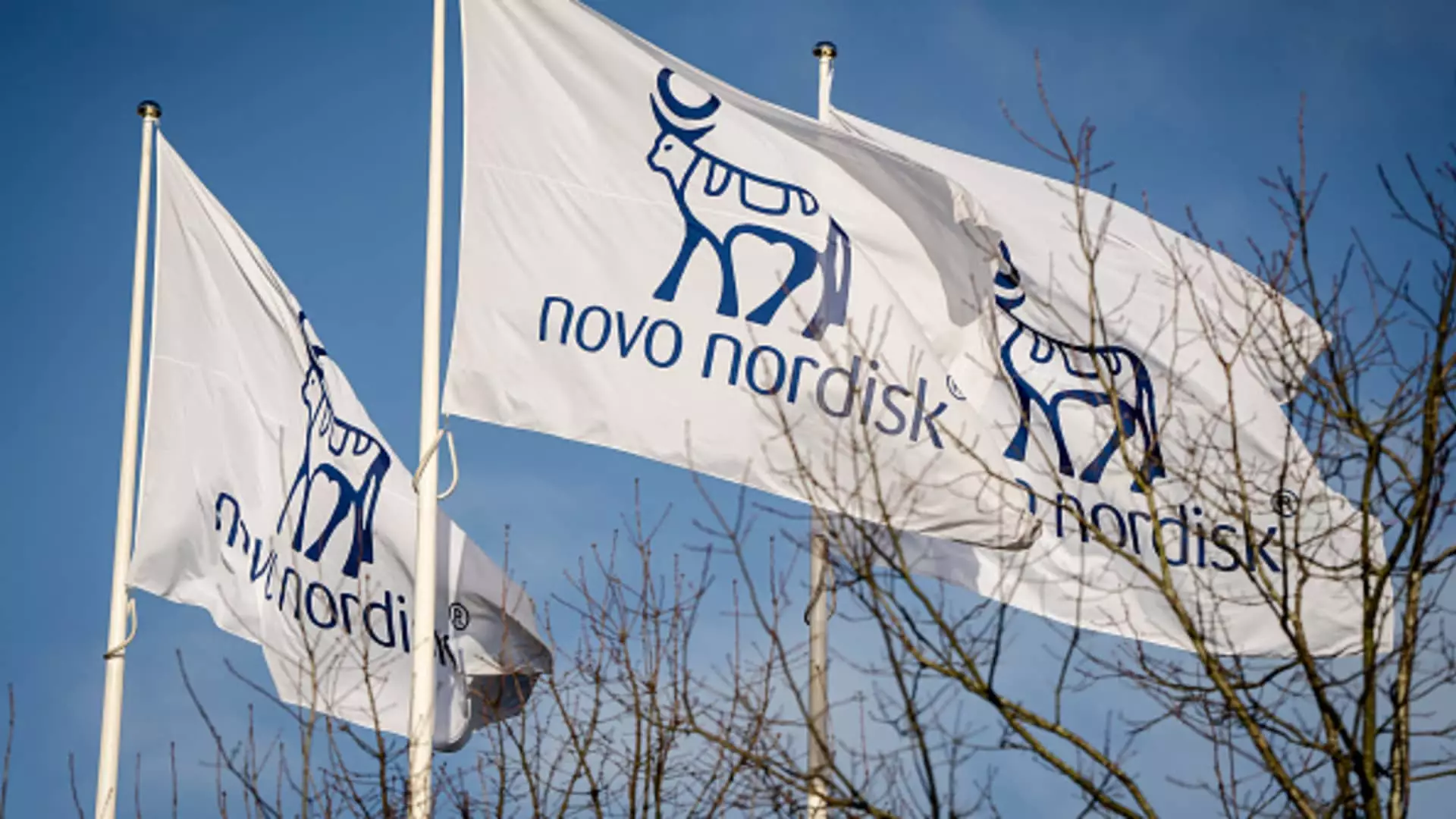Novo Nordisk recently announced groundbreaking findings from a late-stage trial of its diabetes pill, Rybelsus. This oral medication, already recognized for its role in managing Type 2 diabetes, now presents a compelling case for simultaneous cardiovascular health improvement. In practical terms, the data indicate that Rybelsus can lower the risk of cardiovascular-related deaths, heart attacks, and strokes by a remarkable 14% compared to a placebo over an average of four years among patients grappling with diabetes and chronic heart disease. This revelation isn’t just pharmaceutical noise; it signifies a monumental advancement for millions who live with the dual burdens of diabetes and cardiovascular concerns.
As we find ourselves in an era where obesity and related chronic diseases continue to proliferate, the significance of such findings cannot be overstated. In the wake of accelerating cardiovascular conditions, health systems worldwide are perpetually racing to develop treatments that address not only the metabolic parameters but also the overarching cardiovascular implications of diabetes. Rybelsus has opened a new chapter by expanding the treatment options available for patients who are hesitant to accept injection-based medications. The sentiments echoed by Stephen Gough, Novo Nordisk’s global chief medical officer, underline a crucial aspect of patient-centered care: the preference for oral medications over injections, often tied to perceptions around pain and discomfort.
The Efficacy of Rybelsus in Clinical Trials
The Phase 3 trial involved over 9,600 patients aged 50 and above who were administered Rybelsus or placebo in conjunction with their standard treatment regimens. Over the duration of the study, notable cardiovascular benefits emerged; specifically, a 26% reduction in non-fatal heart attacks and a 12% decrease in the risk of non-fatal strokes. The trial’s outcomes, thoroughly substantiated by the results of eight previous investigations into GLP-1 medications, underscore the potential of Rybelsus as a dual-action drug.
Moreover, the finding that 12% of those taking Rybelsus experienced cardiovascular issues versus 13.8% in the placebo group indicates a statistically significant impact, rendering the medication not just another addition to the already crowded space of diabetes medications. What makes these findings even more appealing is the understanding that Rybelsus is backed by extensive research on its active ingredient, semaglutide, which effectively mimics gut hormones to regulate blood sugar while also reducing inflammation.
Addressing Side Effects and Compliance Challenges
It’s essential to acknowledge that Rybelsus is not without its challenges. The clinical trial reported common side effects such as gastrointestinal issues, including nausea and constipation, reminiscent of side effects seen with injectable semaglutide. Nonetheless, it’s intriguing that these side effects did not substantially hinder patient compliance. Patients are often dissuaded from continuing treatment due to adverse effects, yet Rybelsus appears to have struck a balance, allowing users to reap the cardiovascular benefits without abandoning their therapy regimen.
However, the requirement for patients to take Rybelsus on an empty stomach—30 minutes prior to breakfast—poses a potential hurdle. Compliance with this instruction can be troublesome, as dietary habits and daily routines vary widely among individuals. The real question remains: will the convenience of an oral medication prove sufficient to outweigh these minor logistical challenges?
The Competitive Landscape and Future Considerations
While Novo Nordisk has made significant strides with Rybelsus, it is essential to evaluate this landscape in the broader context of an evolving pharmaceutical market. Eli Lilly and others are also delving into oral formulations of GLP-1 counterparts, which might encourage a competitive race and potentially accelerate innovation in treatment options. Ultimately, this burgeoning competition could foster lower prices and broader accessibility, propelling advancements in how we approach diabetes management and diminished cardiovascular risk.
Novo Nordisk has already submitted requests in the U.S. and EU to expand Rybelsus’s indication for serious cardiovascular complications. If approved, it could dramatically shift treatment paradigms for diabetes patients. This evolution resonates with the broader thrust within the healthcare community toward personalized medicine, where treatment modalities are tailored based on individual patient preferences, risks, and benefits.
In a world increasingly focused on comprehensive health, where metabolic and cardiovascular conditions intertwine, Rybelsus arrives as a beacon of hope—a formulation that not only manages diabetes but could also save lives through its cardiovascular benefits. This critical dual-impact capability poses an optimistic trajectory for how diabetes treatment will evolve in the years to come.


Leave a Reply